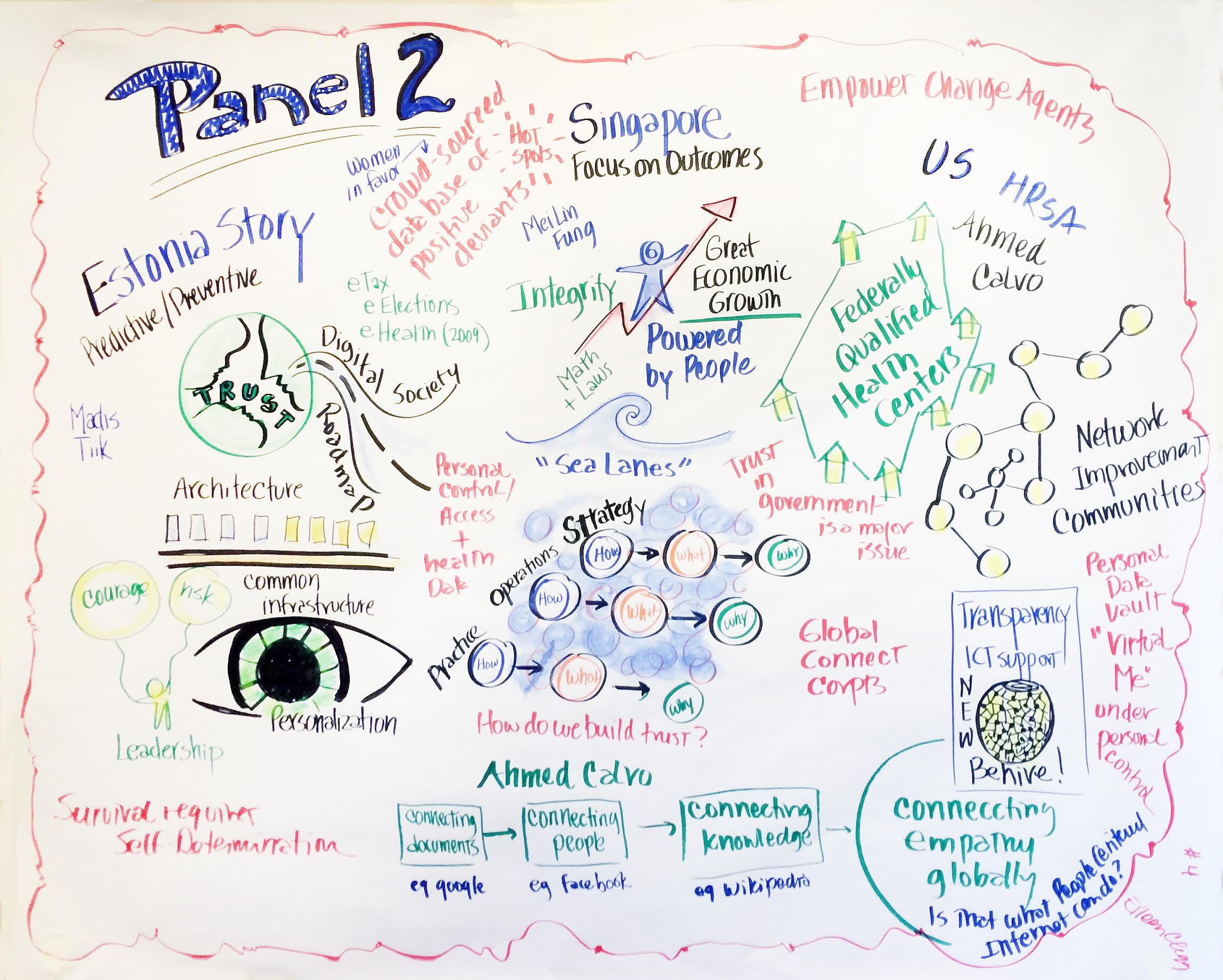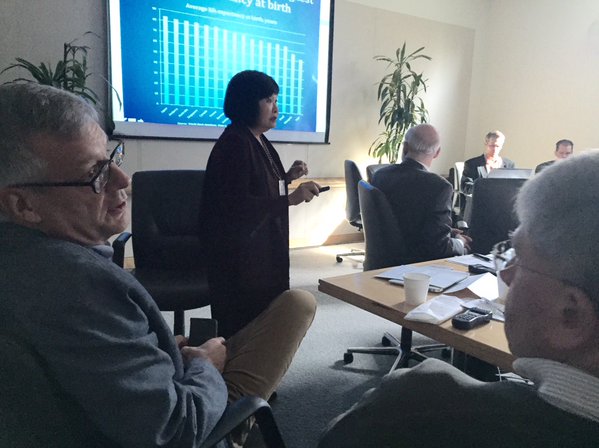D1-2: Case Study Health & Internet Innovation
Moderator: John Mattison, Estonia – Madis Tiik, Tallinn University, Singapore – Mei Lin Fung, US – Ahmed Calvo, Stanford Haas Center for Public Service.

- Personal control of access plus use of health data is important.
- How do we ensure trust is sustained?
- We need transparency without obfuscation - ownership of data needs to be both legalistic and practical
- Trust in government is a major challenge to implementing health care systems.
- Agents of change must have incentives to break through silos to make change - with more empowerment of individuals so that we don't crush individual views.
- Speed to scale of implementation of online healthcare system requires the right incentives to promote adoption by all parties - small states and cities.
- Creating a community of interest for the family member responsible for health can enhance health literacy broadly - varies with culture
- Not everything is family centric - frequently peers have more influence on behavior change.
- It is critical to understand family influence on an individual in a culture to create and apply effective tools.
- A key to adoption of strong authentication and identification is to minimize the amount of information the government requires from the citizens.
- A data vault - virtual me - filled with health data under personal control is a good idea.
- We need community self organization - meetups - where we expand definition of community to people with common health predictors or profiles.
- Global Connect Corps - Service projects for empowering people as they get connected to business - health and financial networks - eg SEALnetonline dot org.
- TORT law in the US can both support trust and erode trust
- We need a crowd sourced database of positive deviance - PD is a formalized term focused on hot spotting - where we use open mapping of PD so that we can more clearly see how to effect change individually or collectively.
- Privacy begins where convenience ends
- Survival requires self determination.


Source: Mark Finnern, via Twitter